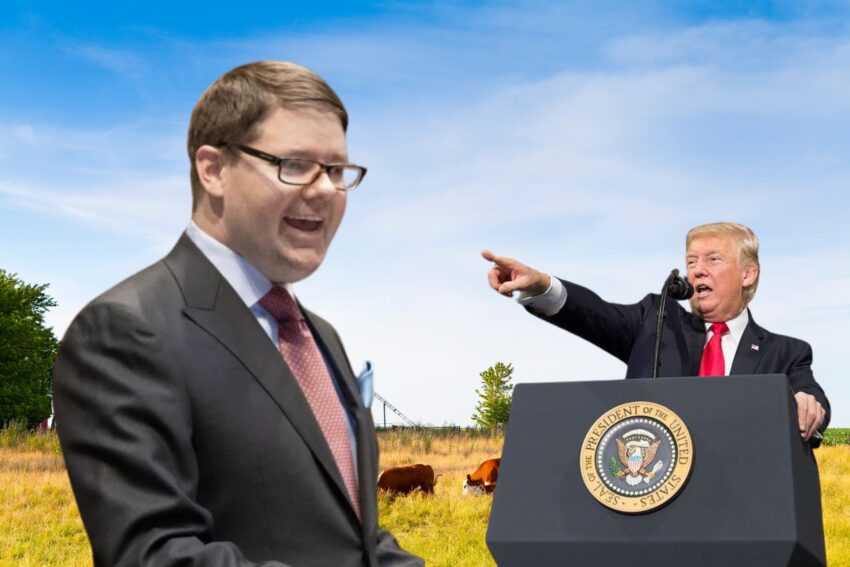In a significant move for the U.S. Department of Agriculture (USDA), President-elect Donald Trump has nominated Stephen Vaden to serve as the Deputy Secretary of Agriculture. This appointment, announced on December 22, 2024, marks a return for Vaden to the USDA, where he previously held the role of General Counsel during Trump’s first term. With a background deeply rooted in both law and agriculture, Vaden’s appointment could herald positive changes for the farming community across the nation.
Background and Experience
Stephen Alexander Vaden, born May 15, 1982, is not just another bureaucrat; he’s a Tennessean with a personal stake in agriculture. Vaden’s father, John Marshall Vaden, was a farmer, instilling in him a profound respect for the land and its cultivators. Vaden himself is a Yale Law School graduate, class of 2008, and has an impressive resume that includes clerking for federal judges in Tennessee, practicing law at prestigious firms like Patton Boggs and Jones Day, and focusing on areas like appellate litigation, election law, and administrative law. His legal acumen was further recognized when he was confirmed as a judge on the U.S. Court of International Trade in December 2020, a position he will now leave to serve the nation’s farmers.
During his tenure as USDA General Counsel, Vaden was instrumental in navigating complex legal landscapes, including implementing the 2018 Farm Bill, legalizing industrial hemp, and regulating bioengineered crops. His experience in winning two cases before the U.S. Supreme Court and his efforts in reorganizing USDA agencies to better serve rural America demonstrate a commitment to not just the letter of the law but to its spirit in supporting agriculture.
Impact on Farmers
From a farmer’s perspective, Vaden’s appointment could mean a leadership that truly understands and empathizes with the challenges and opportunities in agriculture. Here’s how:
Legal Advocacy: Vaden’s legal background could lead to stronger advocacy for farmers in regulatory and trade issues. His previous work in reducing regulatory burdens on producers suggests a continuation of policies that favor practical, farmer-friendly regulations.
Farm Bill Implementation: With firsthand experience in implementing the 2018 Farm Bill, Vaden’s role could ensure that future legislation is crafted with a clear understanding of its real-world implications for farmers, potentially leading to more effective and beneficial programs.
Support for Rural Communities: His work on reorganizing USDA to better serve rural America indicates a commitment to addressing the unique needs of small and medium-sized farms, which are often the backbone of rural economies.
Innovation and Sustainability: Given his involvement with the legalization of industrial hemp and regulation of bioengineered crops, Vaden might push for policies that encourage innovation in agriculture while promoting sustainability, potentially opening new markets and improving environmental practices on farms.
Vaden himself has spoken about the importance of agriculture in his life, saying:
“Throughout his life, [my father] also was a grocer, an investor, and a real estate developer. But it was the title of farmer of which he was most proud.”
This personal connection could translate into policies that genuinely reflect the needs and aspirations of the farming community.
Looking Forward
For farmers, Vaden’s appointment could symbolize a bridge between the complexities of legal and administrative frameworks and the day-to-day realities of farming. His legal expertise combined with a personal understanding of agriculture might foster an environment where farmers feel more supported by federal policy. However, as with any political appointment, the true impact will depend on the policies enacted and the support these policies garner from Congress and the broader agricultural community.
In conclusion, Stephen Vaden’s appointment as Deputy Secretary of Agriculture under President-elect Trump could be a beacon of hope for many in the farming sector. With his background, there’s potential for a USDA that’s not only more effective in its operations but also more attuned to the heartbeat of America’s farms. Farmers across the country will likely watch closely as Vaden steps into this role, hoping it leads to a stronger, more supportive agricultural policy framework.


